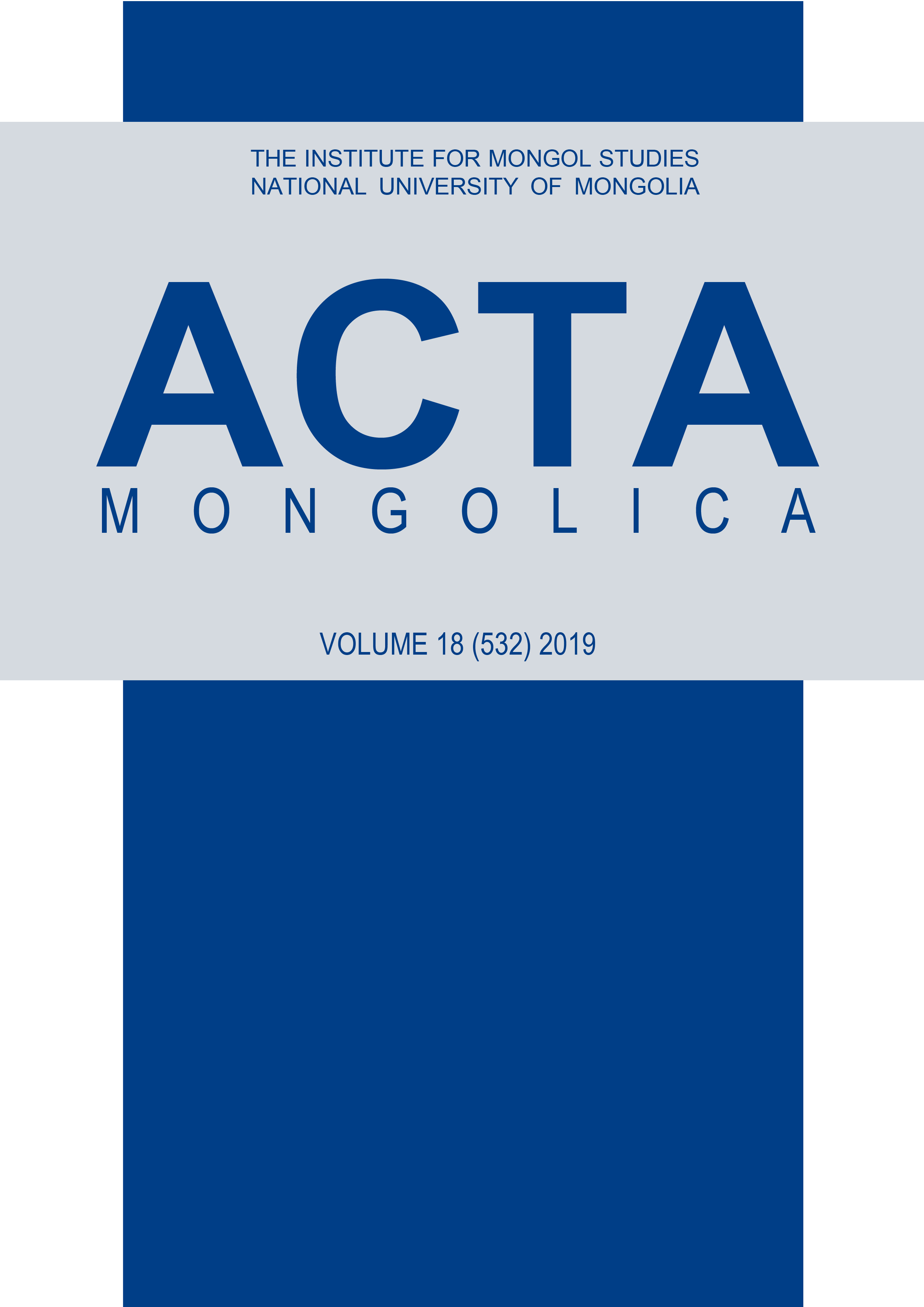Reviews and Representations Comparative observations in post-socialist Germany and Mongolia Comparative observations in post-socialist Germany and Mongolia
Main Article Content
Abstract
The years 1989/1990 are considered a turning point in history. In Germany, where the fall of the Berlin Wall led to reunification, present-day debates around the 30th anniversary focus on matters of disparities in the present time rather than pre-post comparisons. Many issues remain controversial, yet most East German witnesses of the period agree on the positive impacts of freedom gained after 1990, while the ascription of a general inferiority of “the East”, together with a denial of life-time achievements and progressive aspects in the socialist era, belong to their negative experiences. In this short essay, I use a comparative perspective to address some aspects of lifeworld (Lebenswelt) experiences which have (outside social anthropology) largely been unregarded in prevailing portrayals of socialism.
Article Details

This work is licensed under a Creative Commons Attribution-ShareAlike 4.0 International License.
References
Berek, Mathias (2009): Kollektives Gedächtnis und die gesellschaftliche Konstruktion der Wirklichkeit. Eine Theorie der Erinnerungskulturen. Wiesbaden: Harassowitz.
Boldbaatar, J. (2003): Mongolyn zaluuchuudyn khödölgöönii tüükhiin asuudald. In: Tüükh. Erdem shinjilgeenij bichig – tüükh II – No. 211 (20) Ulaanbaatar: Mongol Ulsyn Ikh Surguul’, niigmiin shinjlekh ukhaany surguul’: 139-154.
Boldbaatar, J. (2018a): Mongolyn öörchlön baiguulaltyn (perestroika) tüükhiin sudalgaa, zangilaa asuudal. In: J. Boldbaatar – Erdem shiljilgeenii ögüülel, iltgel, niitlel. 1-r bot‘. Ulaanbaatar: Mongol Ulsyn Ikh Surguul‘, Mongol Sudlalyn Khüreelen: 488-495.
Boldbaatar, J. (2018b): Bügd Nairamdakh Mongol Ard Uls: niigmiin öörchlölt, berkhsheel, sorilt (1945-1990). In: J. Boldbaatar – Erdem shinjilgeenii ögüülel, iltgel, niitlel. 1-r bot‘. Ulaanbaatar: Mongol Ulsyn Ikh Surguul‘, Mongol Sudlalyn Khüreelen: 381-388.
Buden, Boris (2014): Translation and the East. There is No Such Thing as an ‘Eastern European Study of Culture’. In: The Trans/National Study of Culture.
A Translational Perspective, ed. by Doris Bachmann-Medick. Berlin & Boston: Walter DeGruyter: 171-180.
Ganbold, S. (2013): Khalchyn golyn dainy tüükhijn sudalgaa: barimt ba gazar oron.
Ulaanbaatar: Batlan Khamgaalachyn Ich Surguul’; Batlan Khamgaalachyn Erdem Shinjilgeenii Khüreelen.
Krüger, Thomas (2018): RE:PRÄSENTATION. Gastbeitrag in "Formate des Politischen 2018". Online: https://www.deutschlandfunk.de/gastbeitrag-repraesentation.3507.de.html?dram:article_id=427794. Kowalczuk, Ilko-Sascha (2019): Die Übernahme. Wie Ostdeutschland Teil der Bundesrepublik wurde. München: C.H. Beck.
Michael Meyen (2013): "Wir haben freier gelebt". Die DDR im kollektiven Gedächtnis der Deutschen. Transcript-Verlag.
Močnik, Rastko (2009): “Will the East’s Past Be the West’s Future?” Les frontières invisibles. Ed. Caroline David. Oostkamp: Stichting Kunstboek.
Morozova, Irina (2012): On the causes of socialism's deconstruction. In: IIAS The
Newletter, No. 60 / Summer 2012: 6-7. Online: https://www.iias.asia/sites/
default/files/nwl_article/2019-05/IIAS_NL60_0607.pdf.
Morozova, Irina (2014): The debate on Progress, social order and Economy and the rise of new Inequalities in central Asia, 1970 – 90s. In: Jahresbericht der Graduiertenschule für Ost- und Südosteuropastudien, München und Regensburg. Online: https://www.gs-oses.de/_assets/downloads_pdf/annualreports/gs-oses_jb14_screen.pdf
Silova, Iveta, Zsuzsa Millei and Nelli Piattoeva (2017): “Interrupting the Coloniality of
Knowledge Production in Comparative Education: Postsocialist and Postcolonial Dialogues after the Cold War.” In: Comparative Education Review 61.
Sneath, David (2003): Lost in the Post: Technologies of Imagination, and the Soviet
Legacy in Post-Socialist Mongolia. In: Inner Asia 5 (2003): 39-52.
Stolpe, Ines (2008): Schule versus Nomadismus? Interdependenzen von Bildung und Migration in der modernen Mongolei. Frankfurt am Main: Peter Lang.
Stolpe, Ines (2016): Social versus Spatial Mobility? Mongolia’s Pastoralists in the Educational Development Discourse. In: Social Inclusion (ISSN: 2183-2803) 2016, Volume 4, Issue 1, pp. 19-31. Doi: 10.17645/si.v4i1.379: https://www.
cogitatiopress.com/socialinclusion/article/view/379
Stolpe, Ines; Enkhbayaryn Jigmeddorj (2018): Competing Narrations: Views on Mongolia's Colonialism Discourses. In: Controlling Knowledge and the Role of Engaged Intellectuals. Voices from Around the World. 2018/1, online: http://voices.uni-koeln.de/2018-1/competingnarrations.
Tanaka, Katsuhiko (2010): Nomonkhaany dain. Mongol bolon Manjgo uls.Ulaanbaatar: Mongol Ulsyn Ikh Surguuliiin Niigmiin Shinjlekh Ukhaany Surguulʹ.
Tsanjid, Ayurzany (2005): Mongol soyol irgenshil. (Mongolian culture and civilization). Ulaanbaatar: Mönkhiin Üseg.
Watterson, Sally (2014): Jinkhin [sic] Mongol / True Mongolian: Mongolian Museums
and the Construction of National Identity. Deakin University. Dissertation. Online: http://dro.deakin.edu.au/view/DU:30067476.
Yurchak, Alexei (2005): Everything Was Forever, Until It Was No More. The Last Soviet Generation. Princeton and Oxford: Princeton University Press.

